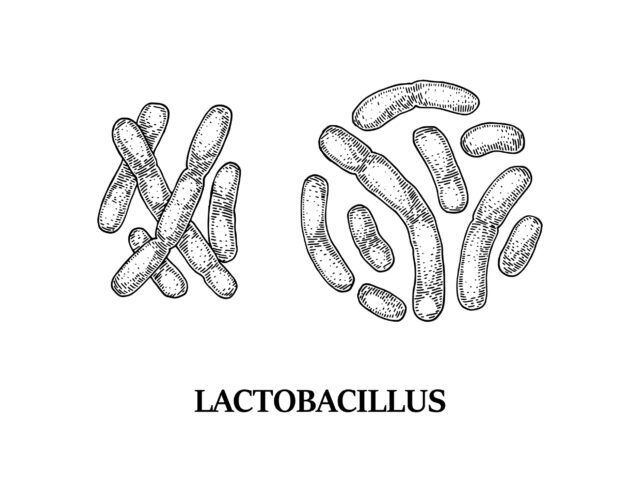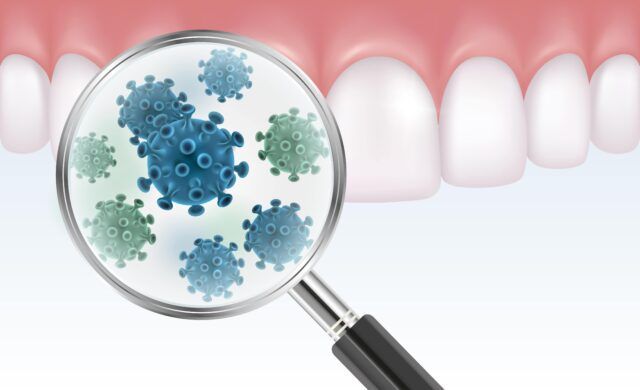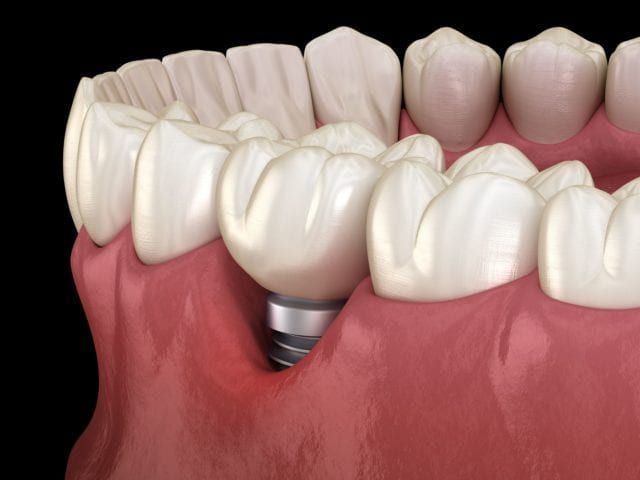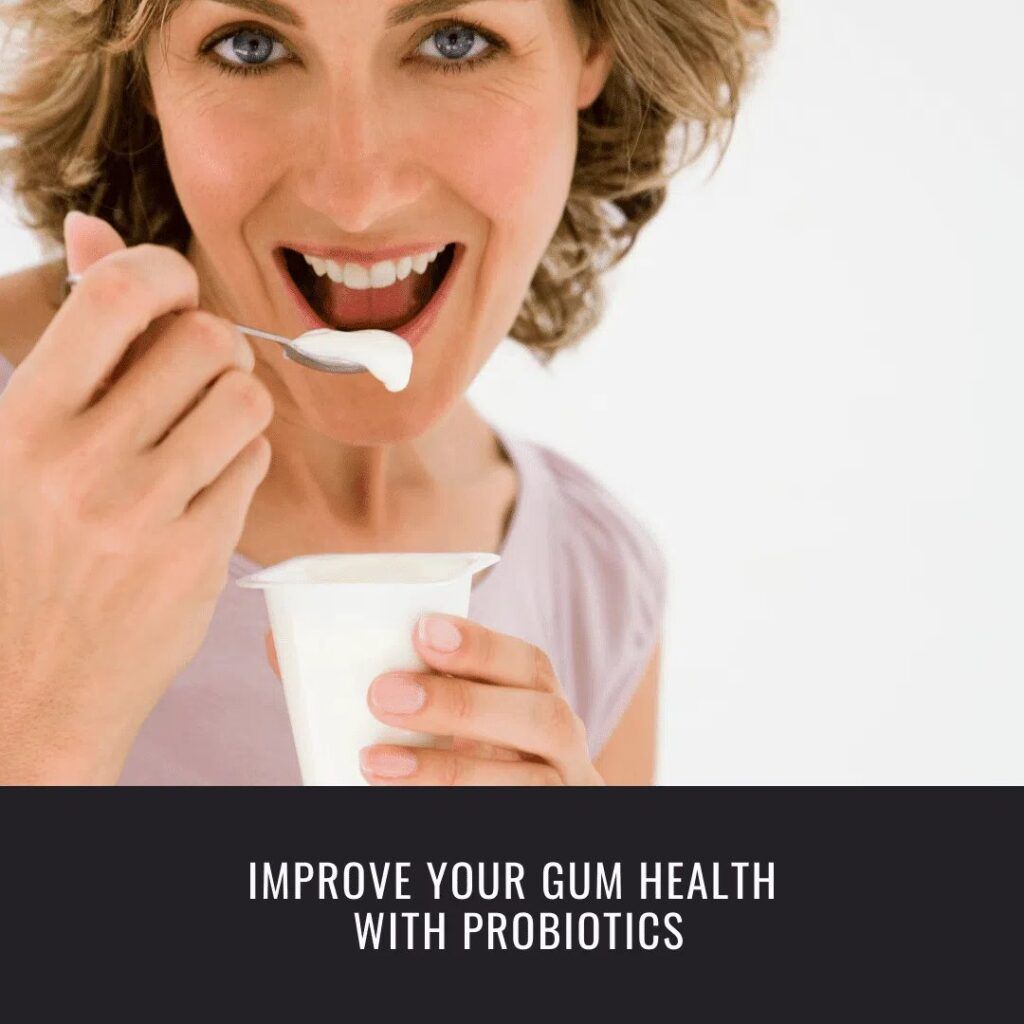Gum disease is a more common problem than you would think. In fact, it’s the leading cause of tooth loss in adults (even ahead of cavities) and affects about half the population! Many people who have lost teeth due to severe gum disease end up getting dental implants as a tooth replacement option. However, as any implant dentist will tell you, gum health is important for the success of dental implants. This means that it is necessary to keep your gums as healthy as possible after having dental implants placed.
Luckily, there are things that you can do to keep your oral health on track. When it comes to preventing or managing gum disease, the best method is practicing good oral hygiene to decrease the amount of bacteria in the mouth. Recently, however, research has shown that probiotics may also be beneficial to the health of your gums. This blog will discuss how probiotics can be used to improve gum health and why this is beneficial for dental implant patients.
What are probiotics?
Probiotic bacteria are the good bacteria that live in your body, mainly in your gut but also on other mucous membranes such as those found in the mouth. The purpose of these good bacteria is usually related to aiding digestion or creating natural antibiotics to kill off harmful bacteria. Other than digestion, probiotics have been found to benefit the lungs, skin, urinary tract, and mouth.

There are many different types of probiotics, but the two main variations are: Bifidobacteria and Lactobacilli. These varieties can be found in fermented foods such as yogurt or kefir (milk products) and sauerkraut (vegetables). You might also see them listed on a probiotic supplement’s label under the name ‘Lactobacillus acidophilus’ or ‘Bifidobacterium longum’.
Lactobacilli, in particular, accounts for 1% of cultivable oral bacteria and has been found to survive in saliva, as well as to adhere to the teeth and gums. Recent research has also listed lactobacillus as being possibly beneficial in the prevention or management of gum disease.
Within the genus of lactobacilli, there are several different species including but not limited to:
- Lactobacillus acidophilus
- Lactobacillus casei
- Lactobacillus fermentum
- Lactobacillus plantarum
- Lactobacillus rhamnosus
- Lactobacillus salivarious
How do they help with my gums?
Even if you have taken probiotics in the past for digestive issues, you may now be wondering just how they can help to improve your gum health. While the exact reasoning is still being researched, recent studies have identified some evidence that indicates taking probiotics could improve gum health in the following ways:
Probiotic supplements have been shown in research studies to reduce the amount of plaque that forms on your teeth. Probiotics have also been found to produce hydrogen peroxide, which also fights off harmful bacteria. One study notes that there is a relationship between lower levels of L. gasseri and L. fermentum, and chronic periodontitis. Studies also indicate that L. gasseri and L. fermentum are actually able to prevent the growth of bacteria that cause gum disease.

Another study discussed the benefits of L. reuteri and L. brevis as they relate to gum health. In this study, participants either chewed gum containing L. reuteri or used lozenges containing L. brevis for a specified amount of time. After the experiment was over, it was found that participants who chewed gum or used lozenges had less plaque accumulation and an improvement in gum inflammation.
These findings show that there could be a link between probiotic use and a decreased risk for gum disease and other oral health problems such as cavities or bad breath. However, researchers still note that more research is needed in this area to entirely understand the nature of this relationship, as well as how to obtain the best treatment outcomes. Dental professionals further add that the best way to prevent or manage gum disease is still, and always will be, to practice good oral hygiene. Even if you use probiotics, you will still need to brush twice a day, floss daily, and visit your dentist for regular dental cleanings.
How Gum Health Benefits Dental Implants
Dental implants can be a great way to replace missing teeth, however they do come with certain precautions. Your dental team will need to make sure that your gums are healthy and strong enough to support the implant. In people with severe gum disease, bacteria can travel below the gums. When this happens, the connective structures around the teeth and the jawbone start to deteriorate. This results in bone loss, which can make it more challenging, or even impossible, to have dental implants placed.

Even in cases where dental implants have been successfully placed, maintaining gum health is necessary to maintain the implant. This is because people with dental implants can still be affected by gum disease, although these conditions are known as peri-implant diseases. These include:
- Peri-implant mucositis: gum inflammation around the soft tissues of the implant
- Peri-implantitis: gum inflammation around the soft tissues of the implant, as well as bone deterioration around the implant
While peri-implant mucositis can be successfully treated when caught early and may be reversible, peri-implantitis is much more difficult to treat. Oftentimes, peri-implantitis requires surgical treatment and can even result in implant failure.
Since gum disease is one of the main reasons why someone might not qualify for an implant and peri-implant diseases can compromise implants that have already been placed, using probiotics could help decrease the amount of disease-causing bacteria in the mouth.
In Conclusion:
Gum health is an overlooked aspect of dental care, but it can have a significant impact on your oral health. New research shows that probiotics can help minimize the risk of gum disease. By taking probiotics to improve gum disease and inflammation around implants, you could potentially prevent or manage peri-implant diseases that would otherwise compromise the implant itself.

